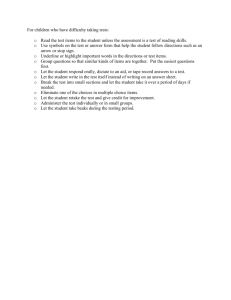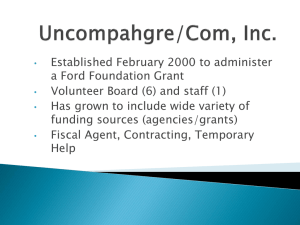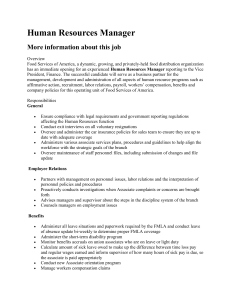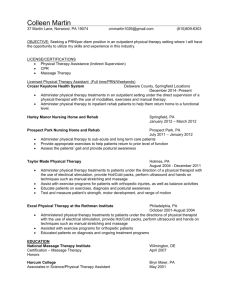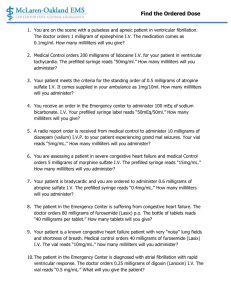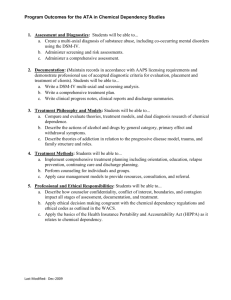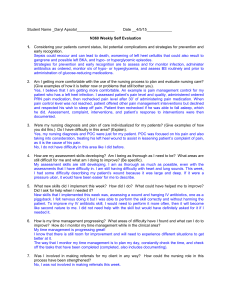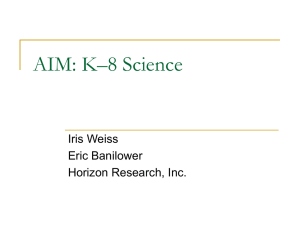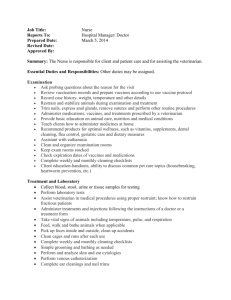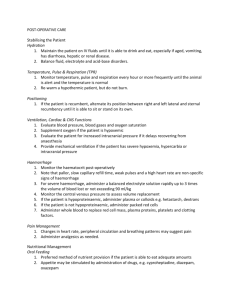Find-the-Ordered-Dose-with-Weight - McLaren
advertisement
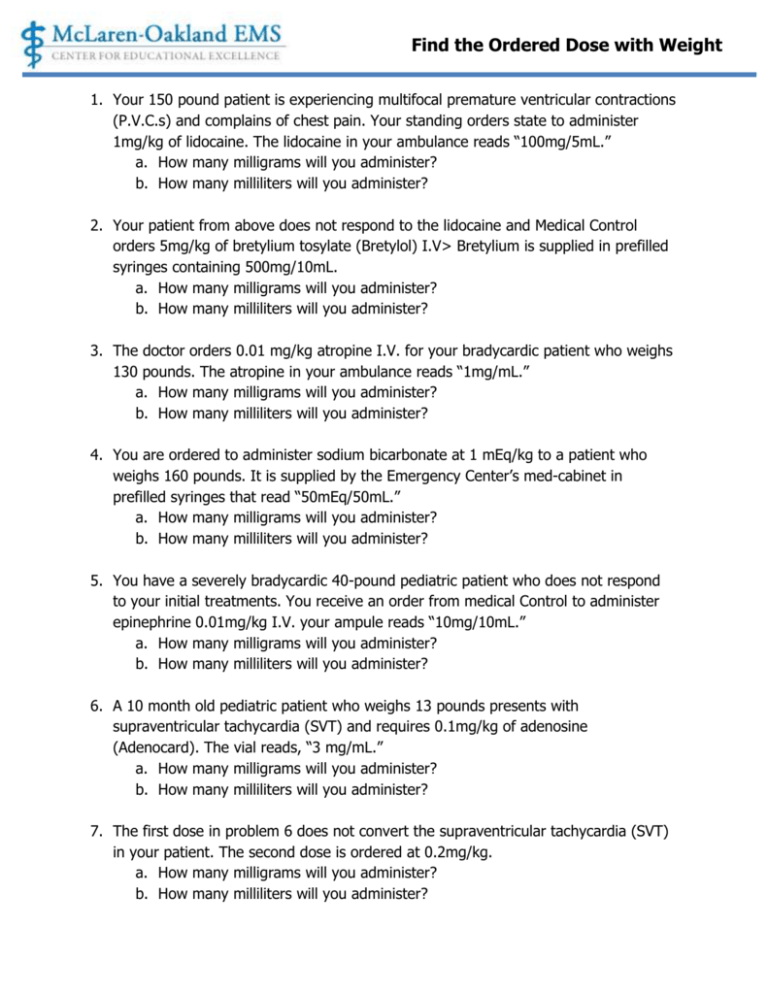
Find the Ordered Dose with Weight 1. Your 150 pound patient is experiencing multifocal premature ventricular contractions (P.V.C.s) and complains of chest pain. Your standing orders state to administer 1mg/kg of lidocaine. The lidocaine in your ambulance reads “100mg/5mL.” a. How many milligrams will you administer? b. How many milliliters will you administer? 2. Your patient from above does not respond to the lidocaine and Medical Control orders 5mg/kg of bretylium tosylate (Bretylol) I.V> Bretylium is supplied in prefilled syringes containing 500mg/10mL. a. How many milligrams will you administer? b. How many milliliters will you administer? 3. The doctor orders 0.01 mg/kg atropine I.V. for your bradycardic patient who weighs 130 pounds. The atropine in your ambulance reads “1mg/mL.” a. How many milligrams will you administer? b. How many milliliters will you administer? 4. You are ordered to administer sodium bicarbonate at 1 mEq/kg to a patient who weighs 160 pounds. It is supplied by the Emergency Center’s med-cabinet in prefilled syringes that read “50mEq/50mL.” a. How many milligrams will you administer? b. How many milliliters will you administer? 5. You have a severely bradycardic 40-pound pediatric patient who does not respond to your initial treatments. You receive an order from medical Control to administer epinephrine 0.01mg/kg I.V. your ampule reads “10mg/10mL.” a. How many milligrams will you administer? b. How many milliliters will you administer? 6. A 10 month old pediatric patient who weighs 13 pounds presents with supraventricular tachycardia (SVT) and requires 0.1mg/kg of adenosine (Adenocard). The vial reads, “3 mg/mL.” a. How many milligrams will you administer? b. How many milliliters will you administer? 7. The first dose in problem 6 does not convert the supraventricular tachycardia (SVT) in your patient. The second dose is ordered at 0.2mg/kg. a. How many milligrams will you administer? b. How many milliliters will you administer? Find the Ordered Dose with Weight 8. A 26 pound pediatric patient is asystole requires 0.02mg/kg of atropine sulfate. Atropine comes supplied for pediatrics in 0.5mg/mL prefilled syringes. a. How many milligrams will you administer? b. How many milliliters will you administer? 9. A 15 year old newly diagnosed diabetic patient who weighs 100 pounds has taken her insulin and not eaten. Your glucometer shows a blood sugar of 45mg/dL. The standing orders call for 0.5g/kg of 50% Dextrose. 50% dextrose comes supplied in 0.5mg/mL prefilled syringes. a. How many milligrams will you administer? b. How many milliliters will you administer? 10. A 7 year old, 45 pound male is in moderate anaphylaxis. You are ordered to administer 2mg/kg of diphenhydramine (Benadryl). Diphenhydramine comes supplied in prefilled syringes of 50mg/mL. a. How many milligrams will you administer? b. How many milliliters will you administer? 11. Your 222 pound patient has converted from V-Fib. His blood pressure is extremely low. Standing orders call for 5mcg/kg of dopamine hydrochloride (Intropin) per minute. How many micrograms per minute is the doctor ordering for this patient? 12. High-dose epinephrine (defined as 0.2mg/kg by standing orders) is indicated for your patient in cardiac arrest who weighs approximately 180 pounds. You choose a multidose vial of 1:1000 epinephrine that has 30mg/20ml a. How many milligrams will you administer? b. How many milliliters will you administer? 13. The initial dose of pediatric epinephrine in asystole is 0.1mg/kg. If your patient weighs 24 pounds and you are instructed to use 1:10000 epinephrine (0.1mg/mL a. How many milligrams will you administer for your first dose? b. How many milliliters will you administer? 14. To sedate your patient for a Rapid Sequence Induction/Intubation (RSI), standing orders call for 0.3mg/kg of etomidate (Amidate, Hypnomidate). Your patient weighs 260 pounds. If etomidate comes supplied in 20 mL vials at 2mg/mL/ a. How many milligrams will you administer? b. How many milliliters will you administer? Find the Ordered Dose with Weight 15. To facilitate intubation of your patient, succinylcholine (Anectine) 1.5mg/kg is ordered after sedation. The patient weighs 260 pounds. Succinylcholine is supplied in 100mg/5mL ampules. a. How many milligrams will you administer? b. How many milliliters will you administer? c. How many ampules must you use to get that dose? 16. After intubation, vecuronium (Norcuron) is indicated to sustain paralysis/skeletal muscle relaxation. A dose of 0.1mg/kg is ordered I.V. on the above 260 pound patient. It comes supplied in 10mg/10mL vials. a. How many milligrams will you administer? b. How many milliliters will you administer? c. How many vials must you use to get that dose? 17. A patient with a history of congestive heart failure is having extreme difficulty breathing and has severely “wet” lung sounds. As part of your therapy for this patient, you are ordered to administer an initial dose of furosemide (Lasix) at 0.5mg/kg. Your patient weighs 178 pounds. Furosemide is stocked in your ambulance in 2 mL ampules in a concentration of 10mg/mL. a. How many milligrams will you administer? b. How many milliliters will you administer? c. How many ampules must you use to get that dose? 18. A patient does not convert out of a V-Fib arrhythmia after initial defibrillation and epinephrine. After the next defibrillation, lidocaine 1.5mg/kg is indicated. The patient in arrest weighs approximately 167 pounds. If lidocaine comes supplied as 100mg/5mL: a. How many milligrams will you administer? b. How many milliliters will you administer? 19. A pediatric burn patient is in extreme pain enroute to the hospital. You have orders from the burn center to administer 0.1mg/kg of morphine sulfate I.V. to your 56 pound patient. Morphine comes supplied in 10mg/mL vials. a. How many milligrams will you administer? b. How many milliliters will you administer? Find the Ordered Dose with Weight 20. Your intubated patient has been in asystole/cardiac arrest for an extended period. Sodium bicarbonate at 1 mEq/kg of an 8.4% (50mEq/50mL) solution is indicated. The patient weighs approximately 110 pounds. a. How many milligrams will you administer? b. How many milliliters will you administer? Find the Ordered Dose with Weight Answers 1. 67.5mg / 3.4 ml 2. 337.5mg / 6.8 ml 3. 0.6mg / 0.6ml 4. 72 mEq / 72ml 5. 0.2mg / 0.2ml 6. 0.6mg / 0.2ml 7. 1.2mg / 0.4 ml 8. 0.2mg / 0.4ml 9. 22.5mg / 45 ml 10. 40.5 mg / 0.8ml 11. 500 mg/min 12. 16.2 / 16.2 ml 13. 1.1mg / 11ml 14. 35.1mg / 17.6ml 15. 175.5 mg / 8.8 ml / 2 vials 16. 11.7 mg / 11.7 ml / 2 17. 40mg / 4ml / 2 vials 18. 112.7mg / 5.6 ml 19. 2.5mg / 0.25ml 20. 49.5mEq / 49.5 ml
